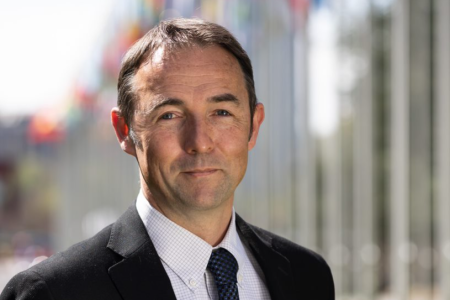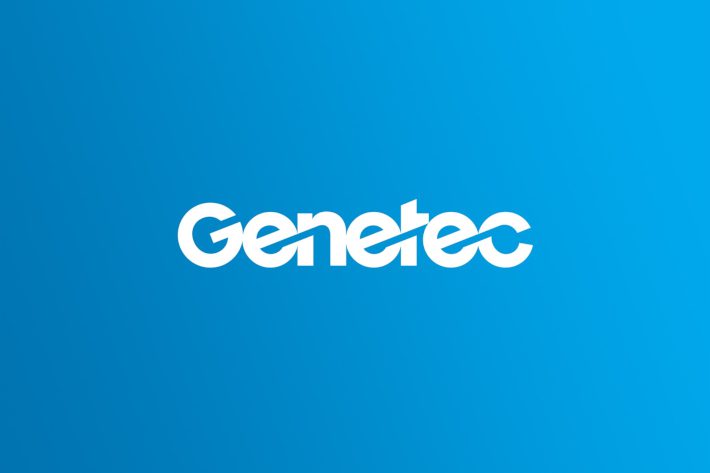Security Buyer ME Editor, Rebecca Spayne catches up with Jamie Williamson, Executive Director, ICoCA about the challenges facing the security sector and the importance of ensuring human rights in private security.
Could you provide us a background into the history and heritage of ICoCA?
The heritage of ICoCA in large part stems from the experiences of the second Gulf War and the conflict in Afghanistan. Coalition governments, international organisations, the media and business corporations were just some of the entities relying on private security providers to secure facilities and protect staff. However, as was widely reported, certain security providers garnered notoriety for all the wrong reasons, with allegations of excessive use of force against civilians and the perceived impunity which prevailed. The 2007 killing of 17 civilians in Nisour Square in Baghdad by US contractors was seen as a turning point, mobilizing the international community into action.
The International Code of Conduct for Private Security Service Providers (the Code) was therefore adopted in 2010 as the first ‘soft-law’ instrument dealing specifically with the obligations and responsibilities of private security providers under international law.
Founded in 2013, and based in Geneva, Switzerland, ICoCA is the independent governance mechanism that oversees implementation of the Code. As an Association, it brings together Governments, private security providers, civil society organisations as well as clients to ensure that human rights, and where relevant humanitarian law, are at all times respected by private security providers.
Could you tell us more about the Code?
The Code is a set of principles based on existing Human Rights Treaties and International Humanitarian Law. It provides a comprehensive set of standards that should guide all private security providers in their operations.
Importantly, the relevance of the Code is not limited to armed conflict or otherwise complex environments. It extends to any context where there is a risk of human rights abuses. This could include for instance mega-sporting events such as the 2022 FIFA World cup and the Olympics, the extractive sector, agri-business, the humanitarian sector and global supply chains of multi-national corporations.
What are some of the biggest challenges for buyers of private security when ensuring they are procuring a responsible security provider that respects human rights?
In response to the growing demand for their services, there are now many more companies vying for business to choose from. It can be hard for buyers to know how to distinguish responsible providers. Increasing competition has also driven down margins. Clients all too often look to secure the services of the cheapest provider. This results in security companies having to compromise on standards to secure and fulfil contracts. When standards drop, the risk of potential human rights abuses occurring rises.
One of the major issues within the sector at present relates to labour issues. We are witnessing a worrying degradation in the working conditions of private security personnel themselves. This is a risk factor – if you treat people poorly, we know that they are far more likely to go on and abuse others. So we see cascading human rights abuses that all stem back to procurement decisions being made to keep costs down and finance departments happy.
With a strong footprint in Iraq, do you foresee the Middle East market growing substantially in the near future?
Yes absolutely. ICoCA currently has its biggest footprint in Iraq, with 15 companies headquartered there and double that number operating in the country. Many of these companies are Iraqi owned and run operations. We are slowly but surely seeing a maturity developing in the understanding by security providers and their clients alike of both the relevance and the importance of integrating the Code and human rights norms into all aspects of a company’s policies, procedures and operations.
A growing number of international clients are now requiring ICoCA Membership for private security companies bidding for tenders. This drives private security companies towards the Association and helps raise standards across the industry. We expect to see this replicated in other markets.
It takes time to build awareness and trust in the ICoCA brand, but the increasing interest being shown by security providers and clients alike in Iraq is a positive trend likely to continue, in Iraq and further afield in the Middle East, Africa and beyond…
To read more news and exclusive features see our latest issue here.
Never miss a story… Follow us on:
![]() Security Buyer
Security Buyer
![]() @SecurityBuyer
@SecurityBuyer
![]() @SecbuyerME
@SecbuyerME
Media Contact
Rebecca Morpeth Spayne,
Editor, Security Portfolio
Tel: +44 (0) 1622 823 922
Email: editor@securitybuyer.com













